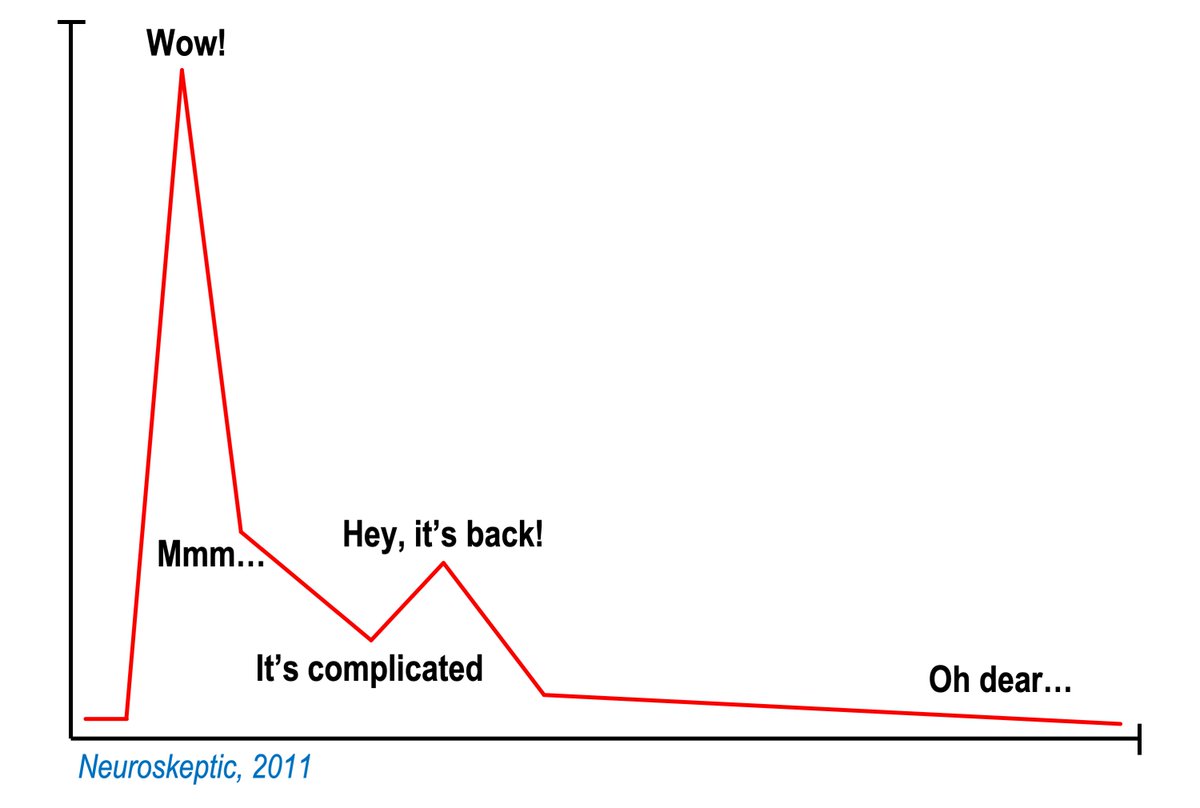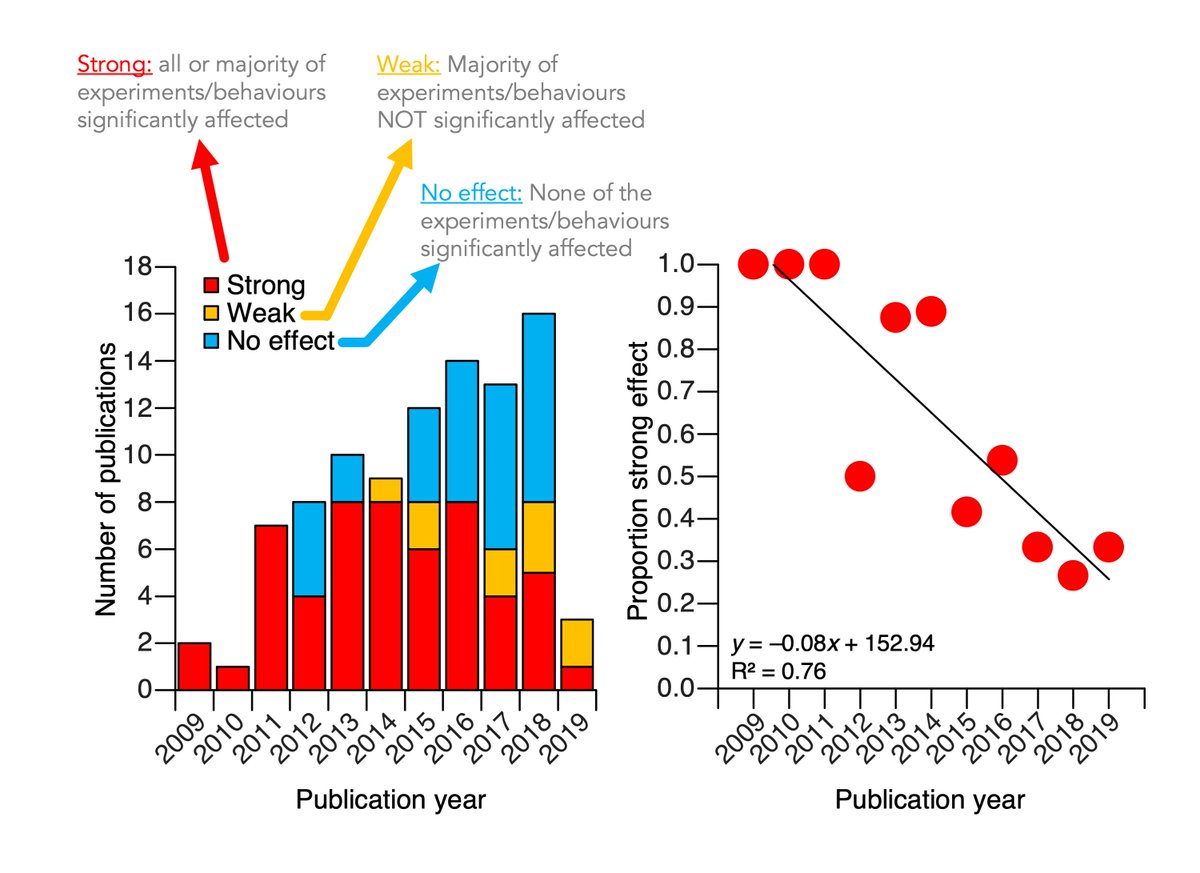
The massive amount of positive attention that our article has been getting has forced me to reflect a bit on the process of getting this thing published
This has by far been the hardest paper to get published in my career to date
journals.plos.org/plosbiology/ar…
A boring thread:
This has by far been the hardest paper to get published in my career to date
journals.plos.org/plosbiology/ar…
A boring thread:
I first presented this work at @SEBiology back in 2019 in Seville - what a brilliant conference
Photo credit: @Craig_R_White
Photo credit: @Craig_R_White

Soon after, we submitted (a much shorter version of) this paper to Nature as a Comment - after a month and a half, the paper was desk rejected
Following that rejection, we submitted the same manuscript to Nature Climate Change, PNAS, Ecology Letters, Current Biology, & eLife - all taking 4-8 weeks to desk reject
Not broad enough
Not broad enough
Six 1+ month desk rejections. Oof!
That's when we decided to give @PLOSBiology a try & oh baby what a great choice that was
The #peerreview process with this journal was sheer brilliance & there are a few things I really want to commend the journal on in handling our manuscript
That's when we decided to give @PLOSBiology a try & oh baby what a great choice that was
The #peerreview process with this journal was sheer brilliance & there are a few things I really want to commend the journal on in handling our manuscript
1. Reviews & editorial decisions:
Initial reviews took abt 2 mos. Editor had secured 4 reviewers: 2 marine ecologists + 2 meta-analysts
Initial reviews = MASSIVE revisions
But reviews were thorough, salient, & manageable
Editor was open to a revision
Initial reviews took abt 2 mos. Editor had secured 4 reviewers: 2 marine ecologists + 2 meta-analysts
Initial reviews = MASSIVE revisions
But reviews were thorough, salient, & manageable
Editor was open to a revision
2. Editorial patience:
The volume & content of the revisions was immense: rewriting, data collection, re-analysis - our response document was 33 single-spaced pages!
As you can imagine, a lot of time & work
It took almost a year to revise but editor was patient + understanding
The volume & content of the revisions was immense: rewriting, data collection, re-analysis - our response document was 33 single-spaced pages!
As you can imagine, a lot of time & work
It took almost a year to revise but editor was patient + understanding
3. Speed:
After resubmitting such a huge revision, we had additional reviewer comments back in under a month
Nothing major & only minor comments to address
Two other rounds of editorial revisions & our paper was finally accepted, just over a year after submitting
After resubmitting such a huge revision, we had additional reviewer comments back in under a month
Nothing major & only minor comments to address
Two other rounds of editorial revisions & our paper was finally accepted, just over a year after submitting
4. Promotion:
The journal's staff saw road value in our work & we worked closely with them to produce a press release & broadly promote our paper
The press contact was super helpful & the journal deserves a lot of credit for this aspect of our paper
The journal's staff saw road value in our work & we worked closely with them to produce a press release & broadly promote our paper
The press contact was super helpful & the journal deserves a lot of credit for this aspect of our paper
5. Embracing controversy:
We didn't want to put a focus on particular authors as a source of the decline effect - we wanted to keep it to the science
But the editors encouraged & asked us for such an analysis knowing very well what it would entail
Big kudos for embracing that
We didn't want to put a focus on particular authors as a source of the decline effect - we wanted to keep it to the science
But the editors encouraged & asked us for such an analysis knowing very well what it would entail
Big kudos for embracing that
In short I really want to thank the editors of our paper (@RoliRoberts, A. Tanentzap) for seeing value in our work when other journals didn't
Their patience, interest & editorial prowess made the paper considerably better than the original MS & provided for a broad appealing pub
Their patience, interest & editorial prowess made the paper considerably better than the original MS & provided for a broad appealing pub
SO if you have an exciting paper & are wondering where to publish it, I would definitely recommend considering @PLOSBiology!
and if you're interested in learning more about the #peerreview of this paper, @PLOSbiology makes the full review process transparent - you can download and read the reviews and responses for our paper here: journals.plos.org/plosbiology/ar…
Finally, I want to give a shout out to @ASanchez_Tojar 7 @DanielWANoble for providing their analytical expertise at the drop of a hat - computing & analyzing effect size magnitudes (i.e., unsigned effect sizes) are much more complex than I originally thought!
• • •
Missing some Tweet in this thread? You can try to
force a refresh











